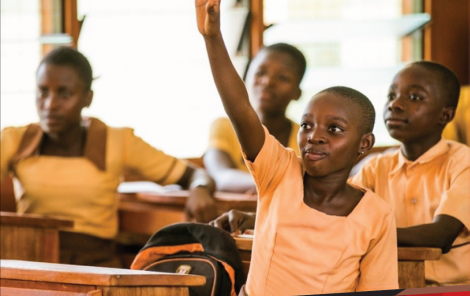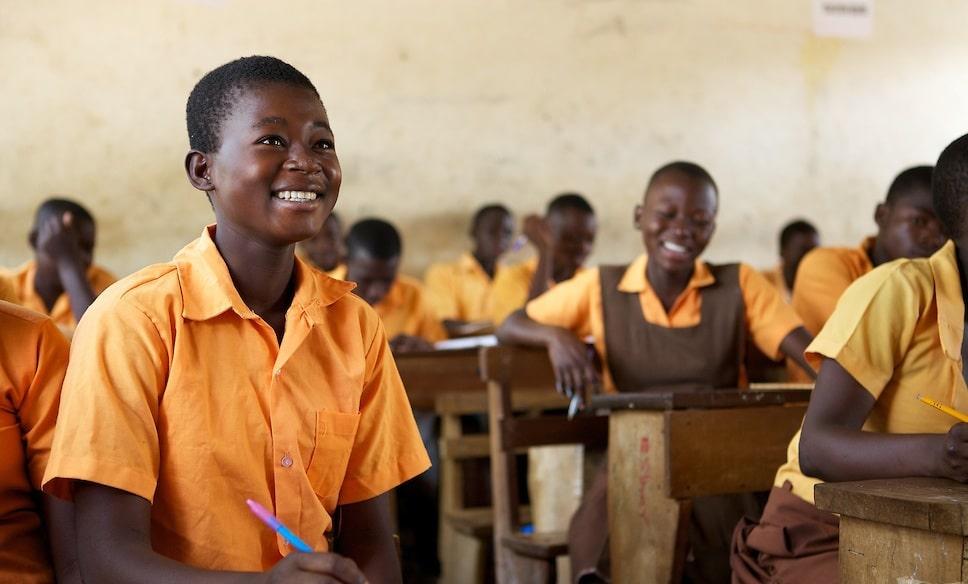

Girls Education and Gender Equity
Closing the Gender Gap in Ghana: Generating the Evidence Base for 'What works' in Gender Equality in Education. (2011). Commissioned by DFID:
AfC assisted and the Girls’ Education Unit of the Ghana Education Service conduct an extensive evidence based study on ‘what works’ in gender equality in Ghana’s basic education sector. A comprehensive nationwide ‘gender intervention map’ and data base was produced which details all girls’ education projects undertaken in Ghana since 2000. The mapping exercise attempts to capture all the girls’ education projects, key strategies and lessons learned in implementing the projects during this period. The primary objective of the gender gap project was to provide the Girls’ Education Unit and interested stakeholders with the evidence to produce a costed, credible national action plan to improve girls’ enrolment and completion of secondary school. The evidence consists of:
- a ‘gender intervention map’ for Ghana, in which the experience of previous and existing intervention programmes are recorded and analysed;
- The gender mapping and sector analysis of girls education in Ghana
- The Gender and Education Bibliography
- ‘What Works for Gender Equality in Ghana’ analytical report.
Strategies to Promote Girls' Education: a look at their impact and effectiveness; Commissioned by SNV, IBIS, UNICEF and WFP (2009):
AfC assisted the SNV and IBIS team finalize the research report for publication by undertaking a meta analysis of fieldwork findings, policy context and trends in girls’ education across Ghana. The report was targeted at the Government of Ghana, civil society agencies, donors and other development partners. A briefing paper based on the findings for senior policy level was also prepared and AfC conducted two dissemination events in northern and southern Ghana.
A Situational Analysis of Gender Issues in Education: From Literate Girls to Educated Women by Dr. Leslie Casely-Hayford and the Education Sector Review Gender Task Team, prepared for the Ministry of Education Accra, Ghana, July 2002
“No race or people can rise half slave, half free. The surest way to keep a people down is to educate the men and neglect the women. If you educate a man you simply educate an individual, but if you educate a woman you educate a family.” (Dr. Aggrey, Ghanaian Educationalist). This report was compiled as part of the “General Education, Gender and the Disadvantaged Consultancy Area”, a sub component of the Education Sector Review (ESR). The report examines the gender equity scenario in Ghana from Kindergarten to Tertiary Level; the types, experiences and results of interventions and best practices; strategic recommendations for the way forward; cost and capacity issues; existing MOE/GES documents on gender policies and evaluations and strategic plans were reviewed.
The study presents key gender issues in educational development in Ghana and enumerates important interventions being spearheaded by government and civil society organizations. The study provides key recommendations for District, NGO and community based initiatives to support female education in Ghana.
"How the Poor Get Poorer" An Exploration into the Participation, Quality and Needs of Female Teachers in Rural Deprived Areas of Ghana by Dr. Leslie Casely-Hayford and Sarah Wilson. Submitted to the Girls Education Unit, Ministry of Education, Ghana . Accra : March 2001.
The following study is an investigation into the needs of female teachers in remote rural areas of Ghana and the reasons for the poor supply of females in these areas. It highlights the needs of female teachers in order for the Ghana Education Service (GES) and more precisely, the Girls’ Education Unit to design strategies to attract and retain more female teachers in deprived rural areas of the country. The study takes a qualitative approach exploring the perceptions of the primary stakeholders in six districts across three geographic zones with the lowest percentage of female teachers involved in basic education: it also involved interviews with the district education staff, female teachers living in deprived rural areas, girls and community members.
